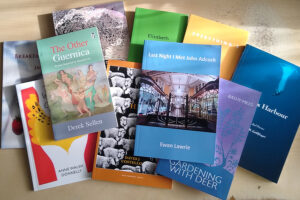All winners of the current contest will be announced on this page with links to all our previous poetry book award winners, shortlisted entries and judge’s comments.
The current competition is closed to entries.
We will announce our long list – 1st August 2024 (‘Top 25’)
Past Winners

To see lists of previous winners and shortlisted entries, plus the judges’ comments use the links below:

